Zebad General Export and Import: Discussing the Coffee Sector in Ethiopia with Emebet Tafesse
Emebet Tafesse shares her assessment of the coffee sector in Ethiopia and presents Zebad General Export and Import, an Ethiopian trading company specialized in exporting high quality, fertiliser-free, washed and sun-dried coffee to the international market. She also gives an overview of ERKAB Transit and Consultancy, her logistics company, and shares her vision for the future.
Interview with Emebet Tafesse, CEO of Zebad General Export and Import
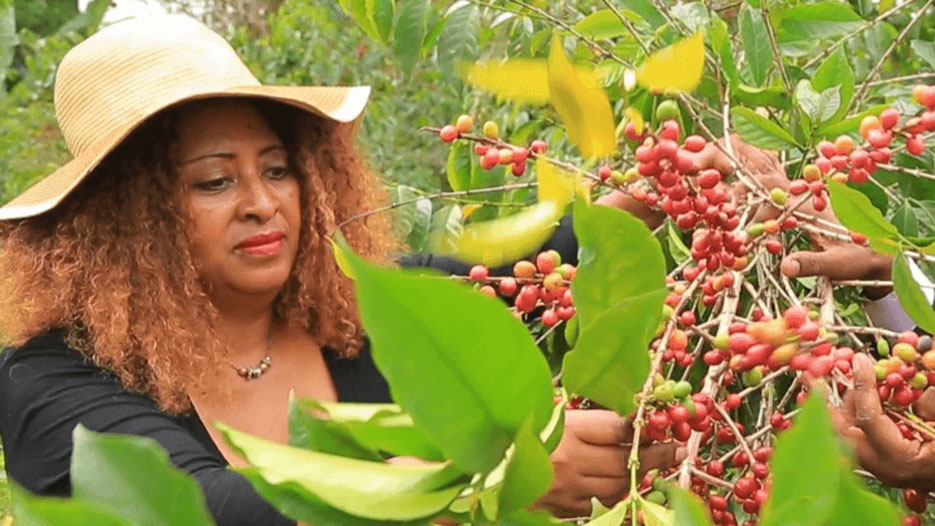
What are the major challenges that you face to boost your business?
Competitiveness in terms of price, in terms of quality, in terms of delivery in the global market is a major challenge. There are more than 50 countries supplying coffee to the world. There are two types of coffee: arabica and robusta. There are countries like Colombia, Brazil, Ethiopia and some African countries. So, there is supply over the demand. Whenever the supply is over the demand, there is always a price pressure from the buyer because they have alternative sources. We should be competitive in the world market by improving in house management such as value chain management, efficient supply chain management, improving the policies, creating an enabling environment, and addressing the issue of the problems of export. We have about 4 million smallholder farmers who produce coffee in Ethiopia. They are just producing garden coffee. They are not big states so the productivity is very low. To bring the coffee to the washing station, to the Central Market, to regional markets, there is a heavy cost. When the coffee is reaching the Commodity Exchange or the warehouse of the farmers, the price is very high. With that price, if we purchase from others in the current market or from the Exchange or from the farmers and try to add some additional costs like processing, delivery, logistics, etc., the prices skyrocket and we cannot compete.
What is your relationship as a company to these farmers?
There are growers, there are traders and exporters like us, and there are other institutions such as cooperatives which have a direct linkage to export coffee from their farm. For companies like me, we are exporters, to export almost 80% of coffee. There is a market which was established in 2008 known as the Ethiopian Commodity Exchange. My company is an original founder. The coffee is collected from different farmer groups and the farmers have representatives in the Exchange. Through the Commodity Exchange we can find whatever coffee you want. The Commodity Exchange is a market or a platform which facilitates the payment system and the delivery system. We buy the coffee, process the coffee, and deliver the coffee to Djibouti, as we are landlocked.
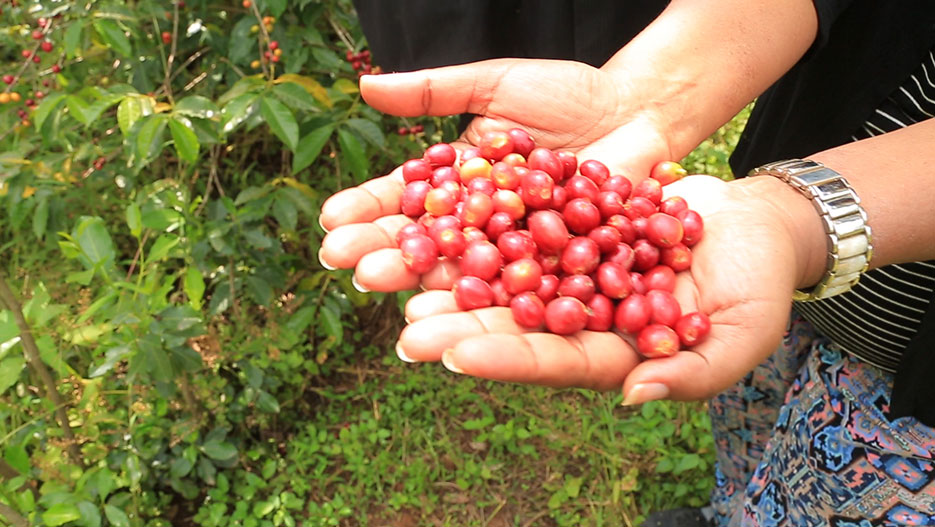
How does the international competition play?
In the market, the problem is the international price. In our case, the price is always high and there is a cutthroat competition. People are evolving and many people are just jumping to the coffee sector to get foreign currency. We have to look for alternatives. We have a big plan to work with farmers and we are organizing farmer groups. Our company was a 2017 African Development Bank business. We are working hard to go to the grassroots and working with farmers and improving the life of the farmer. But, a lot of importers are coming and they just jump into the market. We need to get outside the sector with guidance from the government side.
Are you planning to partner with anyone else in the region?
We want to establish an East African coffee tie. We have a partner in Kenya and we are talking with a partner in Rwanda.
Is it cheaper roasting in Ethiopia than in the UK?
In Ethiopia, doing roasting, from labor cost aspects, we might be cheaper, but coffee should be delivered to the customers fresh. You cannot just put roasted and ground coffee into the container. You should deliver it by air. Air transportation is not cheap.

What are the many roles that you are active in in the coffee sector?
We do have a vision of how to transform Ethiopian coffee for the 21st century, not only for us, not only for my company. We want to bring in other Ethiopian exporters to work with our business model. That is what makes us unique.
I used to be the manager of one of the big tanneries in Ethiopia and I served in the leather sector for quite some time. While I was serving the sector, I was a board member of the Ethiopian Tanners Association. After I left the leather sector, I joined the logistics sector. I was providing logistics services for exporters. Then, I started to think about starting my coffee company, as well. So, I was running these two businesses side by side. I was elected as Vice President of the Ethiopian Coffee Exporters Association, where I got the chance to go to Kenya and USA and I came to learn about international coffee. There is also a regional association called the African Fine Coffee Association and they encouraged us to open an Ethiopian chapter. I founded that chapter and I was the President. I was also serving as a board member of the Ethiopian Freight Forwarders Association. I like to support the sector because without a strong sector, individual businesses cannot bring the desired change.
What are your key competitive advantages? How do you distinguish yourself? What makes your product different?
The difficult part is to make yourself unique. We are traders. We have a trading company which purchases coffee from auction, adds value, and exports to our clients. From the buyer side, there is an issue of traceability and sustainability. To evolve into a specialty market, you have to have your own specific area, specific quality, and sustainable delivery. That was really hard for a company like ours. The price was not attractive for a commodity market. On the traceability issue, by law, the traders were allowed to purchase coffee only from the Exchange, not from the farmer center or somewhere else. But after 2017, there were no laws issued because of this and the problem was escalating. That is why I have tried to develop my business model which was accepted by the African Development Bank and they supported me for the feasibility study to be conducted. The idea was to go to the grassroots, organizing farmers, developing a business model, and truly develop quality coffee, supporting the farmers with their agro economic practice, supporting them with processing, maintaining the quality, and delivering the coffee to the world market. My plan was to work with smallholder farmers and to support the women in the rural area who really did most of the backbreaking jobs in farming. This is my plan and I have the study and I want to move in that direction and I want to look for some people who have interest to get the best coffee and work with a woman like me in coffee.
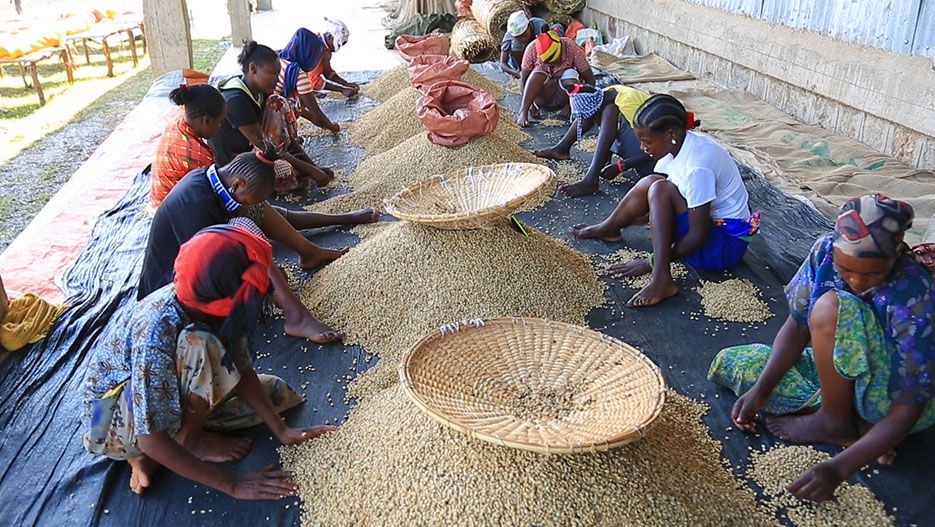
Now that we are in 2021, what has prevented you from doing that quicker?
The law was issued in 2017. The government did not put everything in place up to 2020. Now it has started, but still, there are some problems. There is no clear guidance, everybody just works with this farmer and that farmer, they just give money to the farmers. The system of how to work and how to develop this partnership is not yet set properly. So, our plan is to build a sustainable relationship. For that, we need finance and we need support.
What kind of support do you need? Are you looking for international investors?
We did finance from investors and from foreign lenders. What we have planned on our business plan and our study requires some amount of money. We want to establish a washing station. We want to develop agronomic practices. We want to develop special warehouses with processing systems, quality management, quality control, etc. For all these, we need finance.
Why should an investor consider your project instead of another? What are the advantages of your solution?
Firstly, I do have good experience. We are very committed. We came across so many difficulties in sustaining the business. We do have a vision of how to transform Ethiopian coffee for the 21st century, not only for us, not only for my company. We want to bring in other Ethiopian exporters to work with our business model. That is what makes us unique. Finance makes things possible, but it is the ambitions, the vision, and desirability of the entrepreneur and his determination that makes them different. It is not all about increasing your sales volume. Sales is quite important for a business, but you can transform the business by creating people who really care about the sector, who can transform the sector. We should bring younger people behind us. It will be a role model for other women entrepreneurs. Coffee is a very challenging business. Many exporters have lost their companies and they quit. We are carrying the sector and motivating others to be in the system and to put it in its right position in the world coffee market.
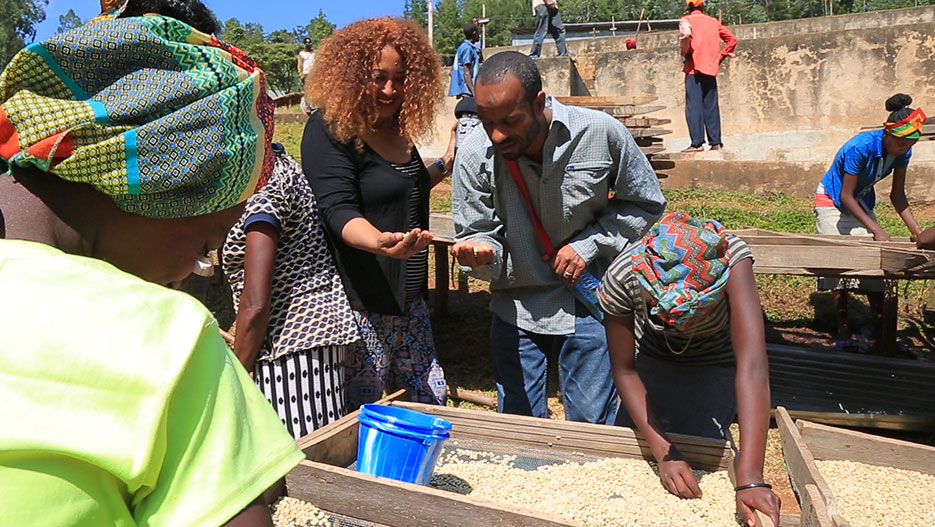
What awards have you won?
There was a competition from the African Development Bank. The first Agricultural Fast Track Fund was there and ADB was really interested to support some companies from Africa. They invited African companies who are involved in agribusiness. There were 28 companies who were involved in the competition. Eight companies were elected as winners and in the coffee sector, my company was the only one. Unfortunately, when this pandemic came, the donor countries were in trouble, so ADB could not fulfill its promise.
What are your current projects?
My current project is exporting my coffee and trying to focus on my logistics business and getting investors.
What is the name of your logistics company? What are your competitive advantages?
My logistics company is known as ERKAB Transit and Consultancy. It is a springboard to make other things possible. My competitive advantage is mainly focusing on providing the service for coffee exporters. We have partners in Djibouti. We are providing the best service for our customers and we enjoy our service. We know what timely delivery means to exporters. We provide the best service so that many companies prefer us.
What are your policies regarding CSR?
CSR is quite important to businesses. I believe that it is mandatory. CSR is related to environment, labor policy, peace, and so many other things. We have a good understanding and a good relationship with people around us and with businesses around us. CSR is one of the important parts of our project. We have a serious interest in CSR because people trust you and you trust them. You have to have a clear understanding and a clear policy on how to conduct that.
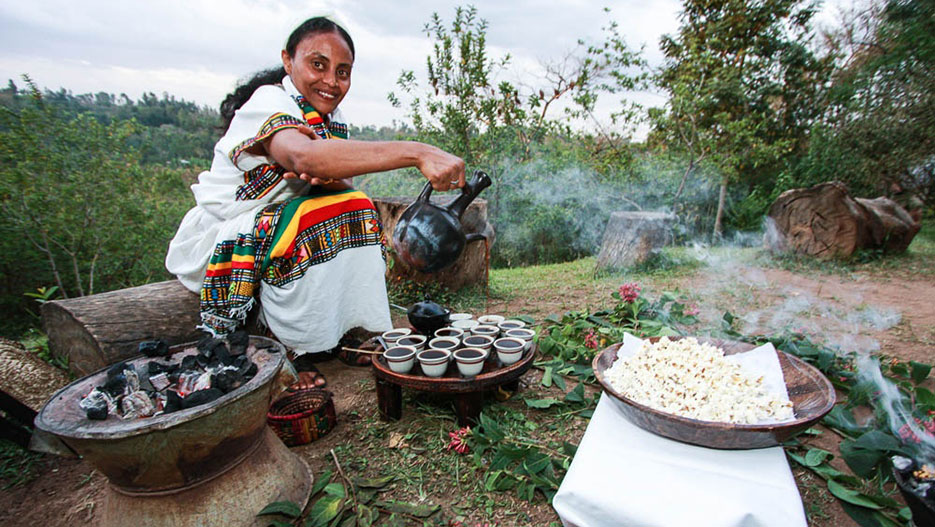
Project yourself in three years’ time, the medium term. What is the vision for your company?
Within the coming three years, I want to see our company as one of the leading medium sized companies in Ethiopia that has a good name, a good reputation, and really is a limelight company.
What drives you to do what you do at the moment? What is your philosophy as a person and your inspiration as a female CEO?
I do have a strong belief that women are the most important part of society. We are the most valuable resource, as a mother, as a wife, as a partner. There is a wisdom. From my childhood, I have had appreciation for my mother. I have appreciation for women who are striving to support their family and working in small markets and small businesses. I have appreciation for women who can stand in front of many challenges. Unfortunately, when you come to developing countries, I want to show that we can do this. We are very valuable. We can inspire the generation after us. Thanks to the current government, many positions are given to women – our president is a woman and almost 50% of administrative positions are held by women. But, that is not enough. I do not want women just to be seen as this affirmative action supporter system. Let’s use that so that we can change the world. This is my aspiration.
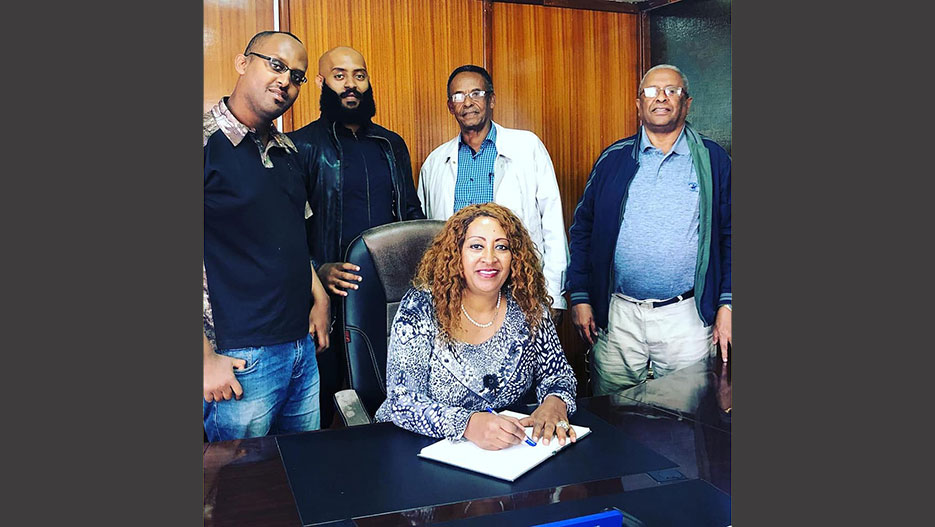
ABOUT ZEBAD COFFEE
• Vision: Zebad envisions to expand its existing premium coffee export business and add its weight to further assist in transforming Ethiopian coffee by partnering with smallholder farmers.
• Mission: Zebad’s mission is to export high quality, organic, washed and sun-dried coffee to the international market. Zebad seeks to serve the farmers at grass root level and coffee importers by exceeding minimum acceptable quality standards and by providing the highest quality product at the lowest possible price. Zebad values that the farmers are at the core of business transaction and get maximum benefit out of the transaction. Zebad’s commitment to the farmers and the country will be reflected through honest and responsible business.
• Competitive Comparison: In order to differentiate its product from the products offered by competitors, Zebad’s beans are traceable, fresh and are shipped within few days of preparation. In addition, all of the farmers and association from which Zebad purchase coffee adhere to environmentally sound farming practice and do not use pesticides and chemicals in their coffee production.
DOCUMENTARY ABOUT ZEBAD COFFEE, AFRICAN DEVELOPMENT BANK AND AFT PROJECT
CONTACT DETAILS
WEBSITE: www.zebadcoffee.com
EMAILS:
zebad.export@gmail.com
emebet@zebadcoffee.com
melat@zebadcoffee.com
finance@zebadcoffee.com
PHONE NUMBER: +251-91-12-293-80 / +251-11-470-86-52
FAX: 251-11-440-34-18
ADDRESS: NEFAS SILK LAFTO Subcity Woreda 9, Kadisco Building Agt z 058/8/2NO/LT/001/A, Postal Code 23870/1000, Addis Ababa, Ethiopia
MORE ABOUT ZEBAD COFFEE
INTERVIEW:
• Zebad General Export and Import: Discussing the Coffee Sector in Ethiopia with Emebet Tafesse
VIDEOS:
• Ethiopian Coffee Sector: An Interview with Emebet Tafesse of Zebad General Export and Import
• Zebad Coffee is Looking for Investors to Help Transform the Ethiopian Coffee Sector
FAIR USE POLICY
This material (including media content) may not be published, broadcasted, rewritten, or redistributed. However, linking directly to the page (including the source, i.e. Marcopolis.net) is permitted and encouraged.